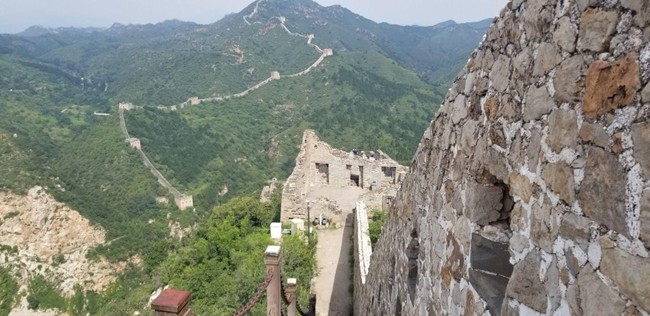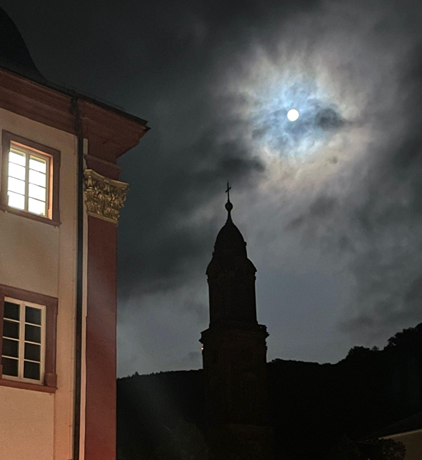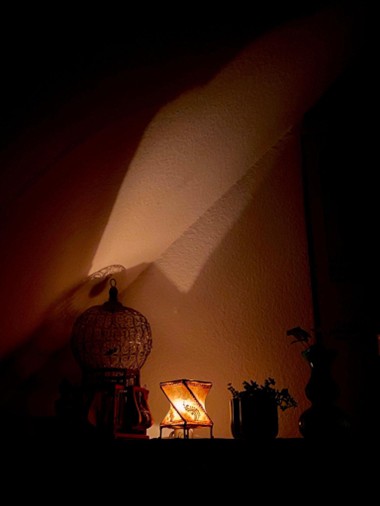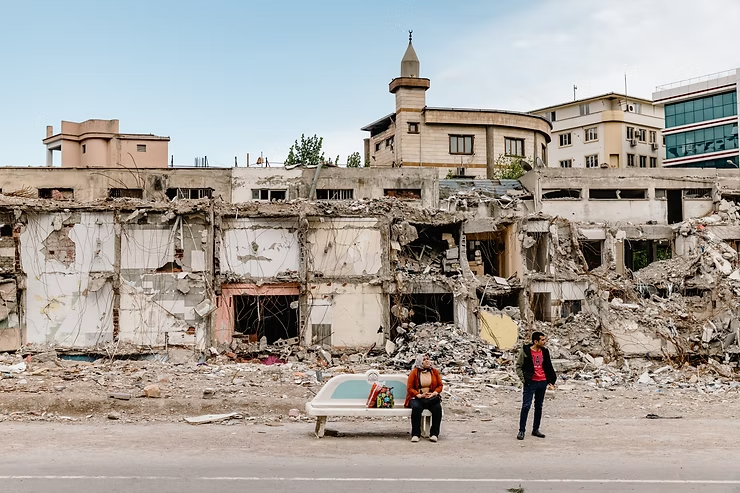
Walls, whether physical, like the Berlin Wall, or virtual, like the Chinese “Great Firewall,” often divide the world into two distinct spheres: the world “within” and the world “outside”. The “within” sphere typically represents restriction, censorship, and surveillance (as seen in East Berlin and the Chinese network environment). In contrast, the “outside” world often symbolises freedom and prosperity (as exemplified by West Berlin and the wider World Wide Web). People raised within these walls often become so accustomed to societal constraints that they may not recognise them as inconveniences. However, some individuals yearn for life “outside” and are even willing to sacrifice their lives to attain freedom.
This dynamic echoes the plot of the popular anime/manga Attack on Titan (nerd alert). The protagonist, Eren, was born and raised within walls that separate his people from the Titans—mysterious, gigantic creatures that prey solely on humans. Eren dreams of a life where humanity can live freely in the vast world beyond the walls that “protect”, even though most people within the walls are content with their peaceful, albeit restricted, existence.
In the series, Eren is often metaphorically depicted as a bird soaring freely in the sky. This short reflection similarly explores a group of “bird-like” people who yearn for freedom “outside” the wall – the queer minority in China. More precisely, it focuses on queer international students holding Chinese citizenship. Why queer and Chinese? In China, like in many other countries that do not support queer rights, queer people grow up learning that homosexuality is considered a significant deviation from the norm. What makes the experience of Chinese queer individuals unique, I believe, is the contrast between the Chinese system and the system in democratic countries. In democratic nations, the legalisation of same-sex marriage can be and has been achieved through the exercise of fundamental rights, like engaging in civil society movements or staging protests. However, the authoritarian nature of China prevents queer individuals from even envisioning the possibility of fighting for their rights through legal channels. How, then, is China different from other homophobic authoritarian countries? Lawmaking in other homophobic countries might be influenced by economic sanctions from other nations, for example, but the growth of China’s influence on the world economy makes this less likely to happen in their case.
Despite these limitations, the influx of soft culture, such as music, films, and Japanese BL (Boys’ Love) themed literature and art, has inspired a significant number of queer Chinese people to dream of a life outside China. In this imagined space, they can love freely without facing persecution, a stark contrast to the often restricted, sometimes tragic and traumatic realities of their lives as queer individuals in China.
Queer Chinese students studying abroad offer a compelling case of migrants actively shaping their own “escape.” Due to the legacy of the one-child policy, most individuals of my generation are only children, receiving significant financial support from their parents, who aspire for them to lead successful lives. Sending children to study overseas has become an attractive option for many Chinese families, where they can gain access to prestigious global universities without the intense pressure of the Gaokao, China’s university entrance exam system. For my MA research, I interviewed 14 queer Chinese students who were either studying or had studied abroad. Many acknowledged that their pursuit of academic achievement was closely intertwined with a hidden longing for the “free world”—a place where they could openly embrace their queer identities. By securing financial backing from their parents under the promise of future success, they effectively concealed their deeper desire for personal liberation. This phenomenon underscores how these students strategically navigate familial and societal expectations to forge a new life abroad, exercising a distinct form of migrant agency.
Living away from their biological families and the social norms they once had to follow, queer Chinese students experienced a newfound sense of freedom while studying abroad. However, this liberation came with its challenges. Tristan (pseudonym), a trans-masculine interviewee, shared that it was in the United States where he first encountered the academic field of gender and sexuality studies—an experience that deeply empowered him. Additionally, Tristan was able to navigate the comparatively accessible process of starting hormone therapy through his student insurance, an opportunity that allowed him to affirm his gender identity. The ability to engage with queer scholarship and access medical transition in the US services gave Tristan a profound sense of liberation. However, each time Tristan crossed the US border, he was required to queue in the lane designated for “aliens.” He found this label deeply unsettling and offensive, believing it dehumanises migrants by reducing them to a mere legal status, stripping them of their rights and dignity. Tristan also expressed frustration with US visa regulations, particularly for international students who had just completed their degrees. For Tristan, the stark contradiction between the US’s celebration of queerness—promoting diversity and inclusion—and its treatment of migrants as “aliens” and potential security risks became a major source of psychological distress. This experience also resonates with other interviewees who studied in Europe, where their queerness was acknowledged and respected, yet their migrant status remained a point of exclusion and discrimination.
In April 2024, Columbia University enlisted the NYPD to crack down on students who were peacefully protesting through an encampment, speaking out against the United States’ complicity in the oppression of Palestinians. Since then, numerous other prestigious universities across the U.S. have followed suit, escalating their suppression of student activism. This wave of repression has also spread to Europe, where police in countries such as Germany, France, Sweden, and the Netherlands continue to harass and detain peaceful protesters. Following the inauguration of the new U.S. administration, authorities have taken their actions even further, now detaining and attempting to deport international students who support Palestinian rights—even those who hold green cards.
As an overseas Chinese individual myself, who has been deeply affected by learning about the state’s violent suppression of the 1989 Tiananmen Square movement—another student-led protest that faced violent state repression—the current scenes are profoundly unsettling. The United States and Europe once stood as beacons of democracy, guiding and inspiring queer Chinese nomads in their search for freedom. Now, that beacon seems to be fading, leaving once-liberated hearts lost in a void.
*Spoiler alert* In the final chapter of Attack on Titan, Eren ultimately achieved his goal of venturing beyond the walls and eliminating all the Titans. However, his hope shattered when he realised that the world outside was not the land of freedom he had envisioned. Instead, he was compelled to keep fighting for the freedom of his people. I found the entire storyline deeply resonant with the experiences of queer Chinese students who, yearning for liberation “beyond the wall,” eventually discovered that what awaited them was not the promised and imagined “freedom,” but even greater challenges, obstacles, and a profound sense of disillusionment.
Like Eren, I also believed that leaving China might lead me to freedom, democracy, and justice. But as I continue to follow the news of the continuous oppression of innocent citizens around the world by armed settlers and the world’s complicity in it, I feel nothing but tremendous despair. The world “beyond the wall” is not the paradise of freedom I once imagined.
Queer liberation is a universal fight that transcends the experiences of privileged white gay men. It encompasses individuals of all races, genders, cultural/social backgrounds and immigration status. Everyone in the world has the right to live freely, to express their identity without fear of persecution, and to have their dignity and cultural heritage respected.












